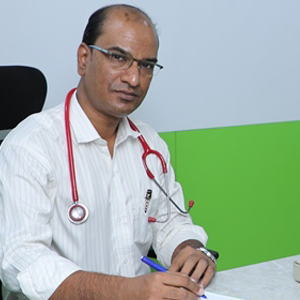Eye and Health Care Centre
Chronic Disease

Chronic Disease Management: Enhancing Quality of Life
Welcome to the website of RBS Eye and Health Clinic, led by Dr. Ravi Shankar, a renowned healthcare professional based in Chennai. We understand the challenges posed by chronic diseases and the importance of effective management in improving the quality of life for patients. Through our website, we provide valuable information on “Chronic Disease Management,” offering insights, strategies, and resources to help individuals navigate the complexities of living with chronic conditions.
Table of Contents
- Introduction: Understanding Chronic Diseases
- The Impact of Chronic Diseases on Daily Life
- Importance of Chronic Disease Management
- Building a Strong Support System
- Collaborative Approach to Chronic Disease Management
- Lifestyle Modifications for Better Health
- Medication Adherence and Monitoring
- Regular Health Check-ups and Screenings
- Mental and Emotional Well-being
- Dietary Recommendations for Chronic Disease Management
- Physical Activity and Exercise
- Pain Management and Symptom Control
- Social and Emotional Support
- Empowering Self-Care Practices
- Conclusion
1. Introduction: Understanding Chronic Diseases
In this section, we provide an overview of chronic diseases, their characteristics, and the impact they have on individuals’ lives. We emphasize the need for long-term management and explore the common chronic conditions affecting millions of people worldwide.
2. The Impact of Chronic Diseases on Daily Life
Chronic diseases often present numerous challenges that can significantly affect an individual’s daily life. We discuss the physical, emotional, and social impact of chronic conditions, highlighting the importance of comprehensive management to mitigate these effects and promote a better quality of life.
3. Importance of Chronic Disease Management
Managing chronic diseases effectively is crucial for maintaining optimal health and well-being. We delve into the significance of chronic disease management, emphasizing the benefits of early intervention, symptom control, and disease progression prevention. By actively managing chronic conditions, individuals can lead fulfilling lives and minimize the impact of their conditions.
4. Building a Strong Support System
Living with a chronic disease requires a robust support system. We provide guidance on building a network of support, including healthcare providers, family members, friends, and support groups. We highlight the role of these individuals in providing emotional support, assistance with daily tasks, and access to necessary resources.
5. Collaborative Approach to Chronic Disease Management
A collaborative approach involving healthcare professionals and patients is vital for effective chronic disease management. We emphasize the significance of open communication, shared decision-making, and active participation in the treatment plan. By fostering a collaborative relationship, we empower patients to take control of their health and work hand-in-hand with their healthcare team.
6. Lifestyle Modifications for Better Health
Lifestyle modifications are key components of chronic disease management. We discuss the importance of adopting healthy habits such as balanced nutrition, regular exercise, stress management, and adequate sleep. By incorporating these modifications into daily life, individuals can better manage their conditions and improve overall well-being.
7. Medication Adherence and Monitoring
Medication plays a crucial role in managing chronic diseases. We stress the importance of adhering to prescribed medication regimens and explain the significance of regular monitoring. By following medication guidelines and monitoring progress, individuals can optimize treatment outcomes and minimize potential complications.
8. Regular Health Check-ups and Screenings
Regular health check-ups and screenings are essential for monitoring the progress of chronic diseases and detecting any potential complications. We provide insights into the importance of regular medical assessments, preventive screenings, and routine follow-ups. By staying proactive in healthcare management, individuals can address issues promptly and make informed decisions about their treatment plans.
9. Mental and Emotional Well-being
Chronic diseases often impact mental and emotional well-being. We shed light on the psychological challenges individuals may face and offer strategies for coping, managing stress, and seeking appropriate support. By addressing mental and emotional health, individuals can cultivate resilience and improve overall quality of life.
10. Dietary Recommendations for Chronic Disease Management
Proper nutrition plays a vital role in managing chronic diseases. We provide dietary recommendations tailored to specific conditions, highlighting the importance of a well-balanced diet, portion control, and mindful eating. By adopting a healthy eating plan, individuals can support their overall health and effectively manage their conditions.
11. Physical Activity and Exercise
Regular physical activity and exercise contribute to improved health outcomes for individuals with chronic diseases. We discuss the benefits of physical activity, provide exercise recommendations, and address safety considerations. By incorporating suitable physical activities into their routine, individuals can enhance their physical well-being and manage their conditions more effectively.
12. Pain Management and Symptom Control
Chronic diseases often come with persistent pain and troubling symptoms. We explore various approaches to pain management, including medication, physical therapy, alternative therapies, and lifestyle modifications. By implementing effective pain management strategies, individuals can experience relief and enhance their overall quality of life.
13. Social and Emotional Support
Social and emotional support are integral to chronic disease management. We emphasize the importance of fostering meaningful connections, seeking support groups, and utilizing available resources. By building a strong support network, individuals can find comfort, share experiences, and gain valuable insights for managing their conditions.
14. Empowering Self-Care Practices
Self-care is an essential aspect of chronic disease management. We provide practical self-care strategies, including stress management techniques, relaxation exercises, and healthy coping mechanisms. By prioritizing self-care, individuals can better manage their conditions and improve their overall well-being.
15. Conclusion
In conclusion, effective chronic disease management is paramount in enhancing the quality of life for individuals living with chronic conditions. Our website at RBS Eye and Health Clinic serves as a comprehensive resource, offering guidance, information, and support for managing chronic diseases. We encourage you to explore our website, access the wealth of information we provide, and take proactive steps towards improving your health and well-being.
FAQs (Frequently Asked Questions)
- What are the most common chronic diseases?
- How can I effectively manage my chronic condition on a daily basis?
- Is it possible to prevent the progression of a chronic disease?
- How can I find a support group for individuals with chronic conditions?
- What resources does your clinic provide for chronic disease management?
Meet Our Optometrists
We Have Best Professional Team To Care Your Eyes and General Health





